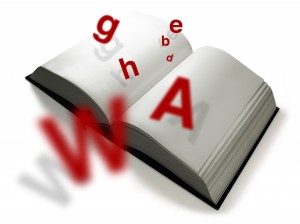 Reviews are lifeblood for any author and I fall on the ground worshipping any reader who has taken the time to compose one. Sometimes, they’re posted independently, on people’s blogs, or a group’s or writing association blog, or on the “big beasts”, Goodreads and Amazon. If you’re really, really lucky you’ll get in the national papers. But what if you are viewed in a different English-speaking country?
Reviews are lifeblood for any author and I fall on the ground worshipping any reader who has taken the time to compose one. Sometimes, they’re posted independently, on people’s blogs, or a group’s or writing association blog, or on the “big beasts”, Goodreads and Amazon. If you’re really, really lucky you’ll get in the national papers. But what if you are viewed in a different English-speaking country?
Conventionally, blog posters write in their native idiom. For instance, I write in standard British English and use those spelling and grammar rules. But I contribute to English-speaking groups on blogs, forums, Facebook and all over the world and nobody gets worried. We are who we are. The objective of social media is to be er, social, and as long as the message gets across and is understood by the other person, then that’s all that matters.
 I try to be culturally aware – I used to be a translator, so I should know. 😉 The safest thing is to use plain language and keep away from cultural connotations such as “Here’s one I made earlier” (Yes, UK Brits are smiling.)
I try to be culturally aware – I used to be a translator, so I should know. 😉 The safest thing is to use plain language and keep away from cultural connotations such as “Here’s one I made earlier” (Yes, UK Brits are smiling.)
But what happens in more formal circumstances such as your book?
This happened to a friend of mine…**
“I did get a review recently from somebody complaining about the “typos” in my book and asking why neighbour is spelled with a “u” and why”centre” is spelled wrongly…and that my book seriously needed a spellchecker (her words) and edit. I debated what to do and then in the end replied to her via private email, thanking her for her concerns and explaining politely that my book was written in British English and therefore all those words were not typos but correct spelling under British English. I also mentioned that my book had been professionally edited by a US editor familiar with both languages. She actually replied very nicely and thanked me for letting her know before she wrote her public review – so it all ended well and prevented a falsely negative review about my book.”
 Now I had a dilemma of my own when I started writing a heroine brought up (or raised?) in America. She speaks American English as her natural idiom and even when she switches to Latin in 21st century Roma Nova, I keep her idiom, phraseology and vocabulary. That’s her voice. But writing as a British English speaker, I use British English spelling.
Now I had a dilemma of my own when I started writing a heroine brought up (or raised?) in America. She speaks American English as her natural idiom and even when she switches to Latin in 21st century Roma Nova, I keep her idiom, phraseology and vocabulary. That’s her voice. But writing as a British English speaker, I use British English spelling.
I think the secret is clarity. Explain, as my friend very tactfully did, that other forms of spelling exist that are native in their own country. It would be parochial to say “Ours is best” when communication is so open and rapid now throughout the English speaking world. I am not saying anything goes. Spelling, punctuation and grammar must be correct within that form of English used; there is no excuse for sloppiness.
But just as we Brits can follow The Wire, Homeland, and True Blood, American audiences are not put off by Dr Who, Foyles War and Prime Suspect. And my US colleagues often say about British books, “Yeah, you know, we get it.”
** H.Y. Hanna, author of the Big Honey Dog Mysteries
Alison Morton is the author of Roma Nova thrillers, INCEPTIO, and PERFIDITAS. Third in series, SUCCESSIO, is out early summer 2014.













Good, sensible advice, Alison. I’m still amazed when reasonably well-educated Americans think our spelling is peculiar or ‘wrong’.
I get cross when my computer insists on re-spelling certain words to make them into American. Am sure there’s some secret button I should press for British English but I haven’t found it yet.
😉 It’s a question of recognising the other speaker’s/writer’s world.
On the techie question… In Word, go to Tools, Language and select English UK, then select default.
If you’re already in a document, Select All, then Tools, etc.
I’m wondering if she was “reasonably well-educated,” Denise! It surprises me that an American who reads regularly doesn’t know the difference. But Alison, your friend dealt with it well and so did the reviewer.
I have American and British characters in “Camelot & Vine.” Because my narrator is American I used American English throughout most of the book, but in dialogue the British characters speak UK English. You can bet I needed some help getting that right!
I’ve watched American cop shows and feature films from childhood (Starsky & Hutch to The Wire) plus I’ve worked in languages and cultural difference much of my life. But when I was drafting my first book, I went every week to the University of Kent (an hour and a half journey each way) to meet two US students who were on placement. I’d contacted the international coordinator who found me two two ideal people; one came from the Midwest, the other from near New York (and her father was a NYPD detective!).
They checked my manuscript in detail – I had a 25 year old heroine narrating the story. I listened to American PBS as well, making notes of sentence construction plus delved into Strunk and White on a regular basis. And I only used Merriam & Webster, not the OED as a dictionary. I really hope I succeeded, but I made the heroine’s father British, just in case, so it would explain any slips.
What we writers do…! But seriously, I think that’s part of our job.
I’m in awe at the lengths you have gone to in getting your work right. Very impressive and not something I had really thought about before reading this post. My novel is based in England so I thought it was straightforward but I am now wondering, for the first time, what all the Americans that have downloaded it in my recent promotion will think of it! Am just hoping some will think enough of it to write a review I guess and one hopefully not complaining about the spelling!
So far, I’ve not had any complaints! It’s a bit brass-necked of me to attempt writing in another variant of English, hence trying to ensure I didn’t make any bloopers! as a language practitioner, that would have been seriously embarrassing.
Americans who have downloaded your book won’t have any problem with the language as we don’t when reading Stephanie Evanovich or J D Robb; they’ll be following the story. In fact, British English is often seen as quaint and cute, which makes it just a little bit different, but in a good way.
My book is written in standard UK English, but with a reasonable sprinkling of Highland Scots expressions. They’re not exactly hard to work out from context, so I do feel it’s absolutely fine for readers to come into contact with different phrases/spellngs etc.
It adds to the character’s profile and gives that essential local colour to your story. As long as it’s not unintelligible, I say go ahead!